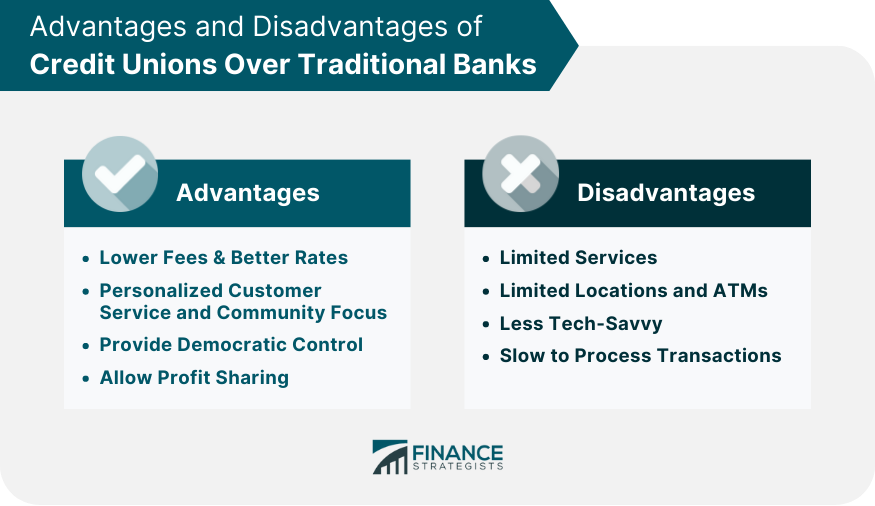Credit Unions in Wyoming: Comprehensive Banking Solutions and Member Advantages
Credit Unions in Wyoming: Comprehensive Banking Solutions and Member Advantages
Blog Article
The Ultimate Guide to Understanding Lending Institution
Credit rating unions stand as unique economic entities, rooted in principles of common support and member-driven procedures. As we browse with the intricacies of credit unions, an insightful trip awaits to lose light on these member-focused institutions and just how they differ from standard banks.
What Are Cooperative Credit Union?
Cooperative credit union are member-owned banks that offer a variety of banking services to their participants. Unlike traditional financial institutions, cooperative credit union operate as not-for-profit companies, indicating their main focus gets on serving their participants instead than optimizing profits. Participants of a credit union usually share a common bond, such as benefiting the very same employer, coming from the very same community, or becoming part of the very same company.
Among the vital advantages of lending institution is that they typically use greater rates of interest on interest-bearing accounts and reduced passion prices on loans compared to banks. Credit Union in Wyoming. This is because debt unions are structured to profit their members directly, allowing them to hand down their revenues in the kind of far better prices and fewer fees. Additionally, lending institution are known for their customized customer support, as they prioritize developing connections with their participants to comprehend their one-of-a-kind monetary demands and goals
History and Development of Credit Report Unions
The origins of member-owned economic cooperatives, known today as lending institution, trace back to a time when areas sought choices to conventional banking organizations. The concept of lending institution stem in the 19th century in Europe, with Friedrich Wilhelm Raiffeisen typically credited as the leader of the participating financial motion. Raiffeisen started the first acknowledged cooperative credit union in Germany in the mid-1800s, emphasizing community support and self-help principles.
The evolution of credit score unions continued in North America, where Alphonse Desjardins established the first lending institution in Canada in 1900. Quickly after, in 1909, the first united state cooperative credit union was developed in New Hampshire by a group of Franco-American immigrants. These early credit history unions operated the fundamental concepts of shared assistance, autonomous control, and member possession.
Over time, debt unions have grown in popularity worldwide because of their not-for-profit framework, concentrate on offering participants, and supplying affordable financial services and products. Today, cooperative credit union play a vital function in the monetary market, giving accessible and community-oriented banking alternatives for people and organizations alike.

Subscription and Eligibility Standards
Membership at a credit history union is generally restricted to people meeting particular qualification criteria based on the organization's beginning principles and regulatory needs. Some credit report unions might only offer people that work or live in a specific location, while others might be tailored to workers of a particular firm or participants of a certain organization.
Furthermore, credit unions are structured as not-for-profit companies, meaning that their key objective is to offer their members instead of create revenues for shareholders. This focus on participant service frequently converts right into more personalized attention, reduced charges, and competitive rate of interest on cost Our site savings and lendings accounts. By fulfilling the eligibility standards and ending up being a participant of a credit history union, individuals can access a variety of financial product or services tailored to their certain requirements.
Services and Products Supplied
Among the key facets that establishes credit score unions apart is the diverse variety of financial product and services they provide to their participants. Lending institution generally offer traditional banking solutions such as financial savings and checking accounts, financings, and credit report cards. Participants can also take advantage of financial investment solutions, including pension and monetary preparation assistance. Numerous debt unions provide competitive rate of interest on interest-bearing accounts and finances, along with lower fees compared to typical banks.
Additionally, cooperative credit union frequently offer practical online and mobile banking choices for members to easily manage their financial resources. They may provide benefits such as shared branching, allowing members to access their accounts at other cooperative credit union across the country. Some cooperative credit union also give insurance coverage products like auto, home, and life insurance coverage to assist members protect their assets and loved ones.

Advantages of Financial With Cooperative Credit Union
When thinking about economic establishments, checking out original site the advantages of financial with credit rating unions exposes distinct benefits for members looking for personalized service and affordable rates. Unlike big banks, debt unions are member-owned and prioritize structure strong partnerships with their members. In general, financial with a credit scores union can supply a more individualized, cost-effective, and member-centric economic experience.
Conclusion
In conclusion, debt unions stand out as member-owned economic organizations that prioritize offering their participants over making best use of revenues. With origins dating back to 19th century Europe, credit history unions comply with principles of mutual assistance and participant possession.
Credit report unions are member-owned monetary organizations that offer an array of financial services to their members. The concept of credit scores unions originated in the 19th century in Europe, with Friedrich Wilhelm Raiffeisen typically credited as the leader of the participating banking activity.The evolution of credit scores unions continued in North America, where Alphonse Desjardins established the very first credit union in Canada in 1900. Credit unions normally supply conventional banking solutions such as cost savings and checking accounts, lendings, and credit cards.When taking into consideration monetary establishments, checking out the benefits of banking with credit unions discloses one-of-a-kind benefits for participants looking for customized solution and affordable prices.
Report this page